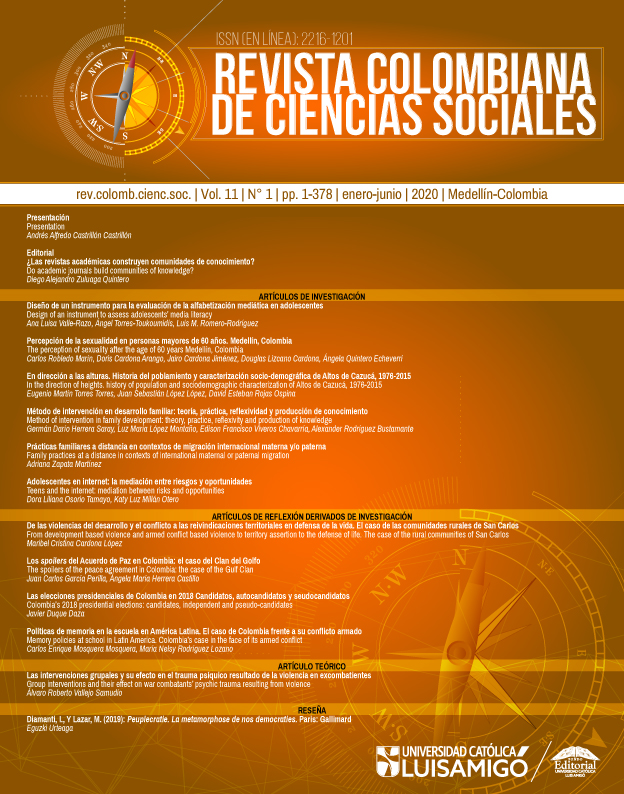Do academic journals build communities of knowledge?
DOI:
https://doi.org/10.21501/22161201.3521Abstract
Receiving the invitation to write the editorial of this issue of the Colombian Journal of Social
Sciences, implied, in my case, asking myself about the contents that this type of writing should have. Obviously, I had read many editorials, but I had never asked myself such question. I decided, then, revised the editorials of the journal that rest in my library. The first result was obvious: publishers do not have either a particular logic or inescapable contents. It was information that was implicitly in my memory, but faced with the responsibility the invitation implied, I didn’t want to take false steps and I preferred to be governed by the rigor. The other result was to realized that in the midst of the books that rest in my library, I had many scientific journals in the field of literary critics, history, sociology and political sciences, among others. Reviewing the indexes, authors and subjects of articles made me think that academic production in the country is much broader than we imagined and that there are many sectors of academia interested in producing knowledge. But what contradicted me most was realizing that among those seventy and eighty journals of my membership, I had only read a few articles and had done that in particular cases with the aim of developing my own research. This led me to wonder about the role of journals in the Colombian academic and educational environment.
Downloads
References
Mannheim, K. (1963). Ensayos de sociología de la cultura. Madrid, España: Aguilar.
Granados, A. (2012). Las revistas en la historia intelectual de América Latina: redes, política, sociedad y cultura. México: Universidad Autónoma Metropolitana, Unidad Cuajimalpa y Juan Pablo Editor.
Collins, R. (2005). Sociología de las filosofías. Barcelona, España: Hacer Editorial. Im Hof, U. (1993). La Europa de la ilustración. Barcelona, España: Crítica.
Pita-González, A. (Comp.). (2016). Redes intelectuales trasnacionales en América Latina duran- te la entreguerra. México: Editorial Maporrúa.
Downloads
Published
How to Cite
Issue
Section
License
La revista y los textos individuales que en esta se divulgan están protegidos por las leyes de copyright y por los términos y condiciones de la Licencia Creative Commons Atribución-No Comercial-Sin Derivar 4.0 Internacional.











